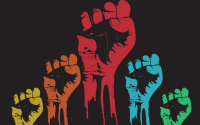12 February 2007David McNeill
Japan launches its most serious challenge yet to the two-decade ban on whale-hunting when it hosts a conference tomorrow aimed at "reforming" the International Whaling Commission.
The three-day meeting in Tokyo could help seal the fate of the world's whaling regulatory body, which pro-whalers say has been "hijacked" by environmentalists. The conference mission statement - headed "Normalising the IWC" - says the commission has "lost its purpose" as a body responsible for the "conservation and management" of whales.
"It is difficult to see how the IWC can continue," said Yasukazu Hamada, a leading member of Japan's Parliamentary Whaling League. "Frustration here is very high. This really is its last chance."
The initiative comes at a critical time for the IWC. The commission is bitterly divided following a majority vote last year in favour of the now infamous "St Kitts declaration", which argued that whales must be culled to save dwindling fish stocks.
Conservationists believe that Japan is trying to build on the momentum of that victory by building an alternative power bloc. "This could be a first step toward building a rival organisation to the IWC," said Junichi Sato, Greenpeace Japan's whaling spokesman.
Pro-whaling nations led by Japan, Norway and Iceland claim the 1986 moratorium is no longer needed because whale stocks are recovering, and want the IWC to shift from protecting whales to "managed, sustainable" whaling.
The Japan Fisheries Agency has invited delegates who are concerned at "the current inability of the IWC to manage whale resources". But the Tokyo conference has already run into trouble before it even starts.
Only a handful of the IWC's 72 member countries have said they will send delegates and 22 nations, including the UK, New Zealand and Australia, are boycotting the meeting.
The US also appears to have pulled out and Denmark, which plans to attend, has been bombarded with protests from around the world, urging it to reconsider. Of those mainly African, Caribbean and Pacific countries that will attend, many are recipients of Japan's "fisheries grant aid", a form of overseas development aid that conservationists say is used as a bribe. Some estimates suggest that Japan has spent three-quarters of a billion dollars in fisheries grant aid since the mid-1990s in an attempt to swing the IWC back to a pro-whaling stance.
The conference opens as Japanese ships in the southern oceans hunt a quota of more than 1,000 minke, Bryde's, sei, sperm and fin whales in their largest "scientific whaling" expedition so far. The fleet is being trailed by environmentalists from Greenpeace and Sea Shepherd, whose members clashed with whalers in Antarctic waters last week.
Japan's fleet plans to kill 50 humpbacks - a red-list endangered species - this year, a move likely to provoke controversy at the next IWC conference in Anchorage, Alaska, in May.
Japan has long threatened to pull out of the IWC, but its bluff may finally be called this year if the Tokyo conference fails and conservationists regain their majority in Alaska.
http://news.independent.co.uk/environment/article2261501.ece






